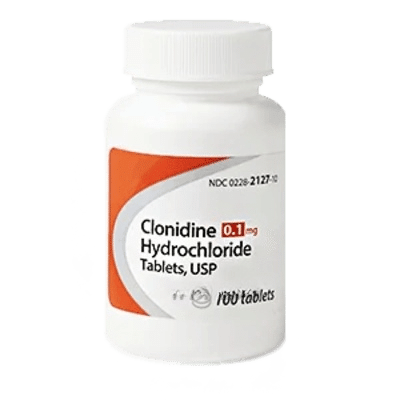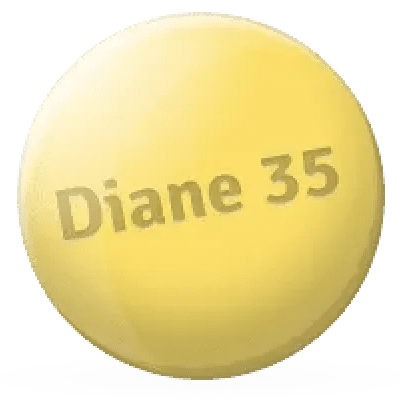
Clonidine
3 customer reviewsWhat is it?
Clonidine is a drug widely used to treat hypertension. It can be used both in the form of tablets for oral administration and in the form of patches that are applied to the skin. The main action of the drug is to reduce blood pressure by affecting certain chemical compounds in the blood and stimulating alpha-2-adrenergic receptors in the brainstem. This leads to a decrease in peripheral resistance, a decrease in heart rate and an overall decrease in blood pressure. In addition to its main purpose, clonidine can be used for other medical purposes, such as maintaining calm and reducing some symptoms in withdrawal syndromes.
Composition
The composition of Clonidine is carefully selected to ensure effectiveness and minimize side effects. The main active ingredient of this drug is clonidine, which interacts with receptors in the central nervous system, affecting the level of certain hormones in the blood. The drug also contains excipients that play an important role in ensuring the stability and absorption of the drug. Such substances can be fillers, binding elements, coating materials and stabilizers. Their presence and composition may differ depending on the form of release - tablets or patches.
- Clonidine
- Fillers
- Stabilizers
- Binding elements
- Coating materials
A specially developed formula allows clonidine to effectively penetrate the body and reach those areas where its action is needed first. This makes the drug a reliable assistant in the fight against hypertension.
How to use?
Understanding how to use Clonidine correctly is important to ensure that you get the most benefit from treatment. Most patients are advised to take clonidine twice daily, but the exact dosage will depend on your individual response to the medication and your medical condition. It is important to follow your doctors instructions and not self-medicate. If you use patches, they should be applied to a clean, dry, hairless area of skin, such as the upper arm or torso. The patch should be replaced once a week, with each new patch applied to a different area of skin to avoid irritation.
- Take the medicine twice a day or as directed by your doctor.
- Apply the patches to clean skin and change them once a week to a new area.
- Avoid self-medication and follow the instructions of your healthcare professional.
Careful adherence to the recommendations for using Clonidine not only helps to achieve the desired therapeutic effect, but also reduces the risk of side effects and complications.
How does it work?
The main mechanism of action of Clonidine is its ability to affect the central nervous system, reducing blood pressure. The drug exerts its effect by stimulating alpha-2-adrenergic receptors located in the brainstem. This effect leads to a decrease in the release of neurotransmitters responsible for increasing vascular tone, which in turn reduces peripheral vascular resistance. This mechanism helps improve blood circulation and reduces the load on the heart.
In addition, Clonidine can be used to relieve symptoms associated with withdrawal syndrome, as well as part of therapy for certain mental disorders. In this case, its action is associated with a calming effect, which helps stabilize the patients condition. Depending on medical indications, the drug can be used both on a short-term and long-term basis, but only under the strict supervision of the attending physician.
Indications
Clonidine is indicated for the treatment of a wide range of conditions, the main one being hypertension. Due to its inhibitory effect on the central nervous system, it demonstrates good efficiency even in cases where other antihypertensive drugs do not give the desired effect. However, hypertension is not the only thing it can be used for. The drug can be useful in a number of other cases that require stabilization of blood pressure and reduction of nervous excitement.
- Hypertension
- Withdrawal syndrome
- Some mental disorders
- Migraine prevention
- Pain associated with some blood pressure correction is necessary
These indications make Clonidine popular among doctors, but the approach to its use should always be individualized and based on a thorough assessment of the patients condition.
Contraindications
Despite its effectiveness, Clonidine has a number of contraindications that are important to keep in mind before starting treatment. First of all, it is not recommended for use in the presence of certain cardiovascular conditions that may be aggravated by the drug. Also, some heart rhythm disorders and conditions that affect the conduction of cardiac impulses may serve as a contraindication for its use. It is equally important to take into account an allergic reaction to clonidine itself or other components of the composition.
- Hypersensitivity to clonidine
- Sick sinus syndrome
- Bradycardia
- Atrioventricular block grades II and III
- Acute myocardial infarction
Correct consideration of these contraindications allows you to avoid complications and ensure the safety of treatment for the patient.
Side effects
Like any other medicine, Clonidine may cause certain side effects. Some of them are related to its effect on the central nervous and cardiovascular systems. In rare cases, patients may experience allergic reactions that require immediate medical attention. Other effects may be milder, but still require attention and consultation with a doctor if they occur.
- Urticaria
- Difficulty breathing
- Palpitations
- Swelling and rapid weight gain
- Feeling confused and hallucinating
Knowledge of these possible effects helps patients respond correctly to changes in their well-being and seek medical help in a timely manner.
Frequently asked questions
Reviews and Experiences
I have been taking clonidine for several months now and it has significantly improved my condition. My blood pressure has become more stable and I feel much better. It is important, of course, to follow all the doctors recommendations and visit him periodically for check-ups.
I was taking this drug to lower my blood pressure, but I started having severe headaches and low energy. The doctor said I need to change the dosage or even try another therapy, so Im still in the process of finding the best solution.
I was prescribed clonidine to help me feel better, and indeed, after I started taking it, it became easier to cope with nervousness and high blood pressure. The side effects are minimal, and I am glad that I chose this particular remedy.



